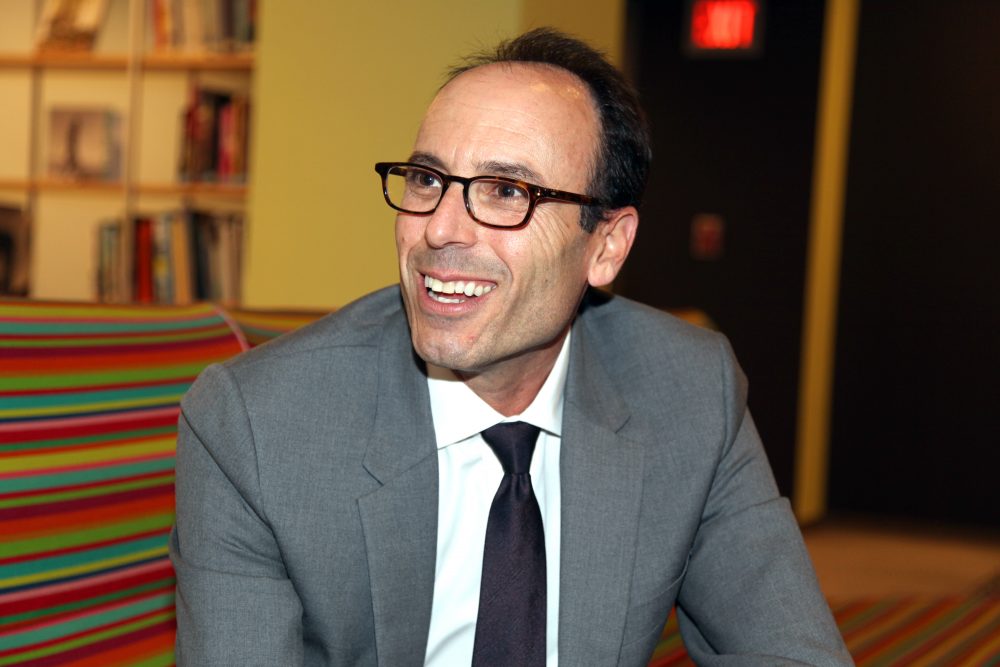
Photo by Aaron Salcido.
Adam Winkler is a constitutional law scholar at UCLA. Before joining a panel discussion for a Zócalo/UCLA event titled, “Does the Expansion of Presidential Power Threaten the Constitution?” at the Museum of Contemporary Art in downtown Los Angeles, he talked in the green room about going paperless, Twitter v. Facebook, and a crucial period of U.S. history that few people know anything about.
What device do you do most of your reading on?
I have a Kindle and an iPad, but I tend to use my iPad for almost all my reading. I read most of my books on the iPad through my Kindle app. Much as I love the feel of a book, I love the fact that I press a button and I start reading it. I’m trying to go paperless.
Which social media site do you spend the most time on?
I do Twitter more than anything else. I also Facebook, Instagram, and Snapchat. But I mostly use Twitter, as a way to get a lot of good information about the things I care about. Facebook is a great way to find out about my college roommate’s daughter and her Girl Scout troop.
Is there a teacher who really shaped your life or even changed it?
Ken Karst, a legendary constitutional law professor at UCLA. He was my mentor and he was responsible, I’m sure, for getting me a job there. He is a great, incredibly kind, generous, loving man, who really took me in when he had no reason to, and taught me how to be a scholar. His lesson was, “Always think small.”
How did he mean that?
He said that too often lawyers get focused on the big ideas and forget how it affects ordinary people on the ground, and that at the end of the day we’re trying to figure out the best rules for those people on the ground. He said, “Always think about how does this affect one person standing there, alone.” That’s what really matters.
Is there a past or future time that you’d want to travel to?
Just after the Civil War, the Reconstruction Era. Constitutional lawyers like me often focus on the framing, writing, and drafting of the Constitution. But the Constitution was radically overhauled in 1868 with the addition of the 14th Amendment, and before that the 13th Amendment, outlawing slavery, and the 15th Amendment afterward, guaranteeing the right to vote. And yet we don’t talk about the members of Congress or the other people who led that charge. I can say, “John Bingham wrote the 14th Amendment,” and nobody knows who we’re talking about. And yet it’s the 14th Amendment that’s the basis for Brown v. Board of Education, Roe v. Wade, and Obergefell v. Hodges, the same-sex marriage ruling. I think that would be a really fascinating time to be alive in America.
What kind of car do you drive?
Uber. I got rid of my car about a year and a half ago. I’m that rare breed, an Angeleno who doesn’t drive. It took me about an hour to get here from Westwood [during rush hour]. An hour in the back seat of a car, working on my email or reading the latest judicial opinion is much better than an hour sitting in traffic.
Who’s your favorite Rolling Stone?
Keith Richards. Because isn’t it a miracle he’s still alive?



